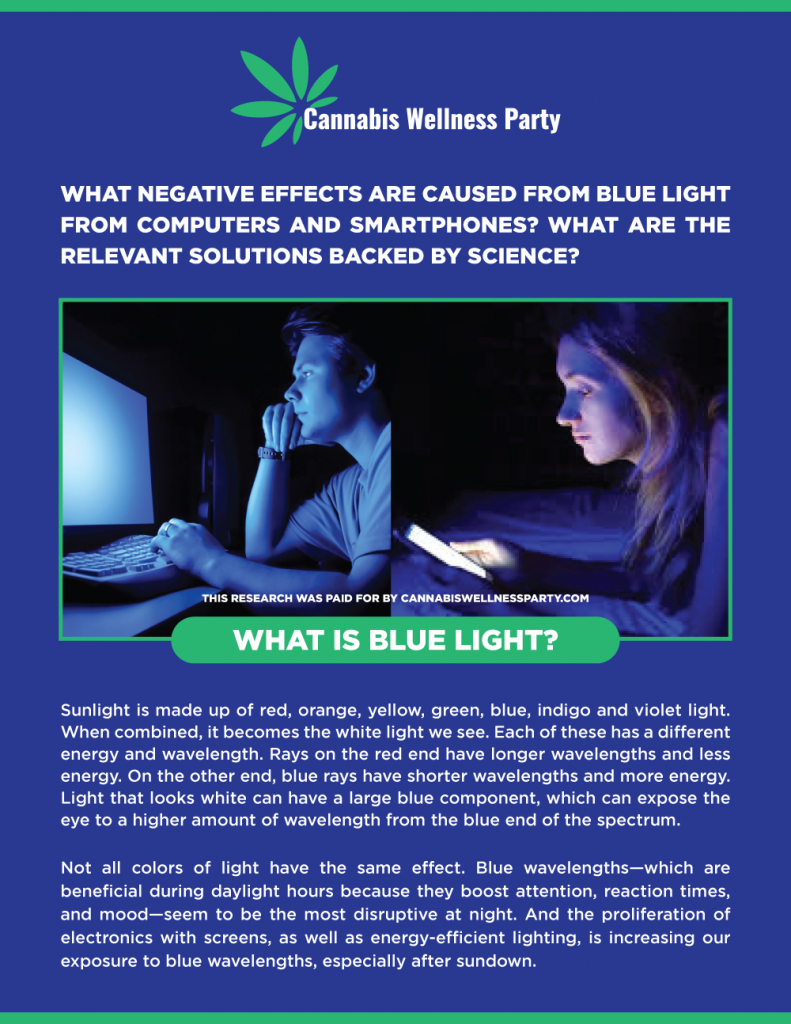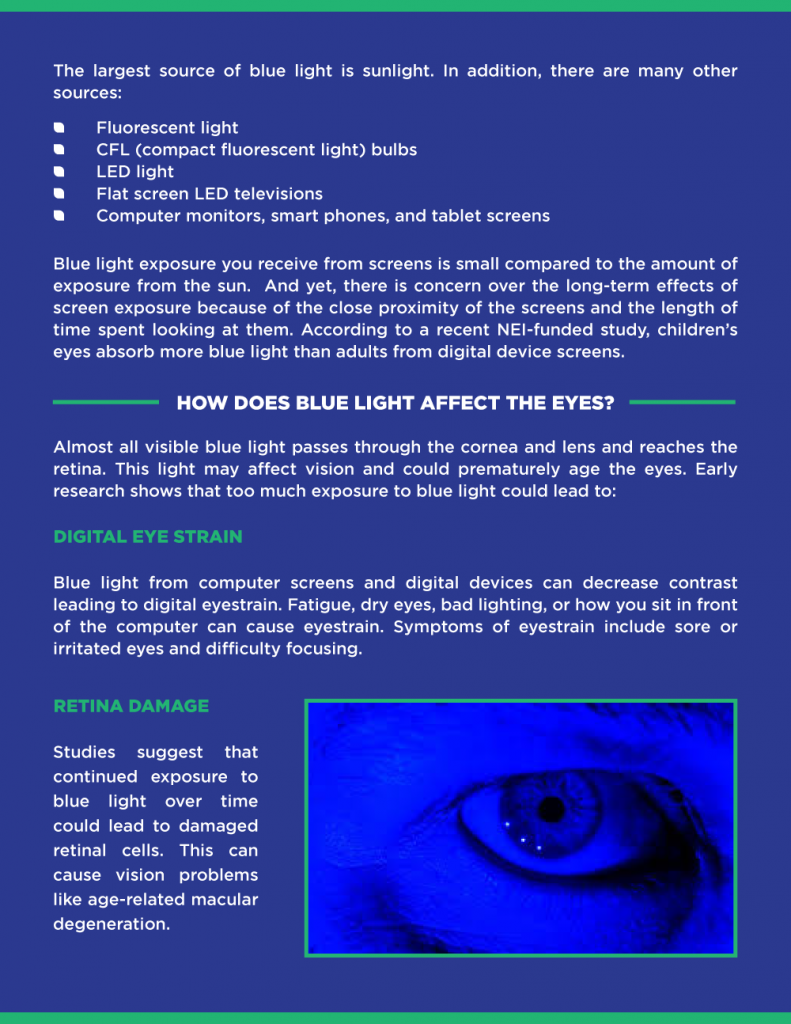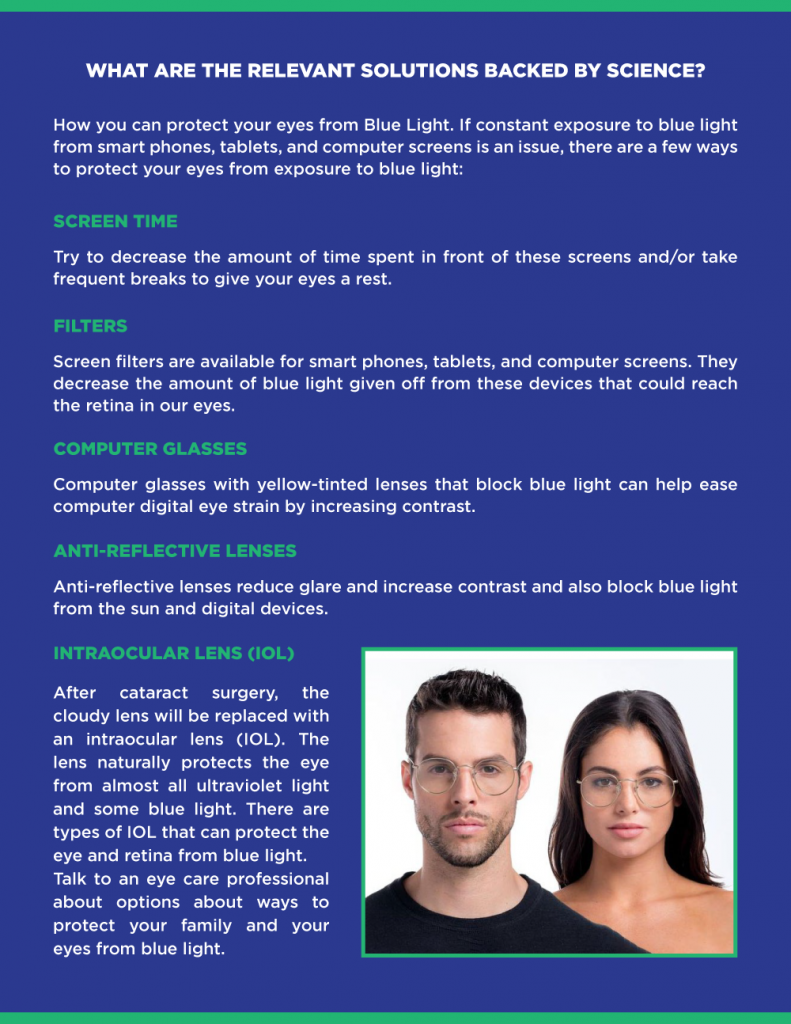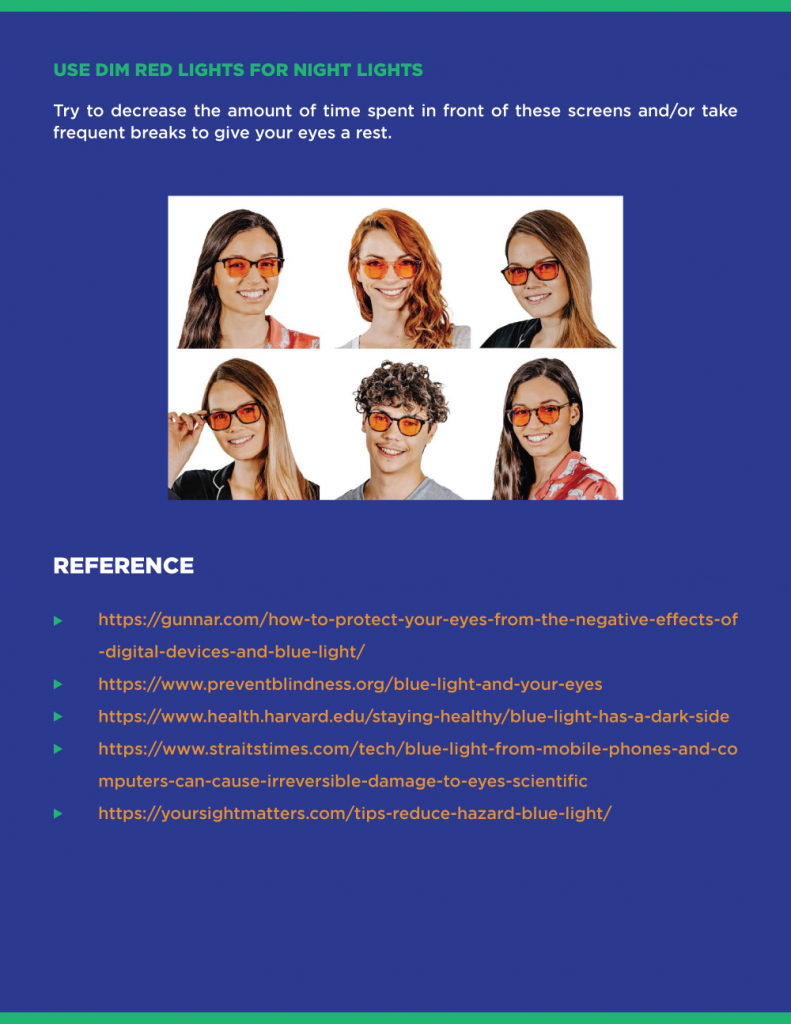What Negative Effects Are Caused from Blue Light from Computers and Smartphones?
What is Blue Light?
Not all colors of light have the same effect. Blue wavelengths—which are beneficial during daylight hours because they boost attention, reaction times, and mood—seem to be the most disruptive at night. And the proliferation of electronics with screens, as well as energy-efficient lighting, is increasing our exposure to blue wavelengths, especially after sundown.
*This Research was paid for by www.CannabisWellnessParty.com and www.TheJediLawyer.com
Download Free Report – CLICK HERE!!!
Sunlight is made up of red, orange, yellow, green, blue, indigo and violet light. When combined, it becomes the white light we see. Each of these has a different energy and wavelength. Rays on the red end have longer wavelengths and less energy. On the other end, blue rays have shorter wavelengths and more energy. Light that looks white can have a large blue component, which can expose the eye to a higher amount of wavelength from the blue end of the spectrum.




The largest source of blue light is sunlight. In addition, there are many other sources:
- Fluorescent light
- CFL (compact fluorescent light) bulbs
- LED light
- Flat screen LED televisions
- Computer monitors, smart phones, and tablet screens
Blue light exposure you receive from screens is small compared to the amount of exposure from the sun. And yet, there is concern over the long-term effects of screen exposure because of the close proximity of the screens and the length of time spent looking at them. According to a recent NEI-funded study, children’s eyes absorb more blue light than adults from digital device screens.
How Does Blue Light Affect the Eyes?
Almost all visible blue light passes through the cornea and lens and reaches the retina. This light may affect vision and could prematurely age the eyes. Early research shows that too much exposure to blue light could lead to:
Digital eyestrain
Blue light from computer screens and digital devices can decrease contrast leading to digital eyestrain. Fatigue, dry eyes, bad lighting, or how you sit in front of the computer can cause eyestrain. Symptoms of eyestrain include sore or irritated eyes and difficulty focusing.
Retina damage
Studies suggest that continued exposure to blue light over time could lead to damaged retinal cells. This can cause vision problems like age-related macular degeneration.
What are the Relevant Solutions Backed by Science?
How you can protect your eyes from Blue Light. If constant exposure to blue light from smart phones, tablets, and computer screens is an issue, there are a few ways to protect your eyes from exposure to blue light:
Screen time
Try to decrease the amount of time spent in front of these screens and/or take frequent breaks to give your eyes a rest.
Filters
Screen filters are available for smart phones, tablets, and computer screens. They decrease the amount of blue light given off from these devices that could reach the retina in our eyes.
Computer glasses
Computer glasses with yellow-tinted lenses that block blue light can help ease computer digital eye strain by increasing contrast.
Anti-reflective lenses
Anti-reflective lenses reduce glare and increase contrast and also block blue light from the sun and digital devices.
Intraocular lens (IOL)
After cataract surgery, the cloudy lens will be replaced with an intraocular lens (IOL). The lens naturally protects the eye from almost all ultraviolet light and some blue light. There are types of IOL that can protect the eye and retina from blue light.
Talk to an eye care professional about options about ways to protect your family and your eyes from blue light.
Use dim red lights for night lights
Red light has the least power to shift circadian rhythm and suppress melatonin and avoid looking at bright screens beginning two to three hours before bed.
References
https://www.preventblindness.org/blue-light-and-your-eyes
https://www.health.harvard.edu/staying-healthy/blue-light-has-a-dark-side
https://yoursightmatters.com/tips-reduce-hazard-blue-light/

